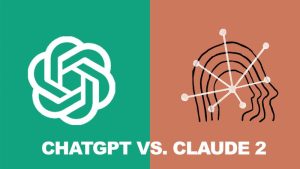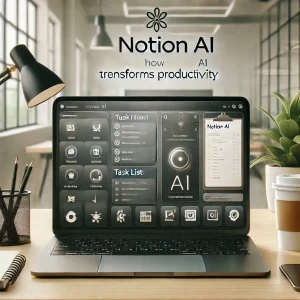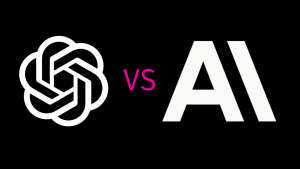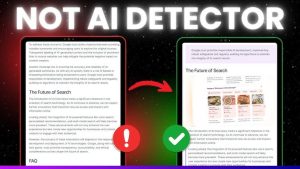Transforming Patient Care: How AI is Revolutionizing Healthcare Diagnostics and Treatment
Artificial Intelligence (AI) is making a big impact on healthcare. It is changing how we diagnose and treat patients. This post will explore AI’s role in improving healthcare diagnostics and treatment, highlighting the latest technologies and their benefits.
What is AI in Healthcare?
AI in healthcare involves using machine learning and other technologies to enhance medical care. AI systems analyze large amounts of data to find patterns and make predictions. These predictions can improve patient care and make healthcare processes more efficient.
Key AI Technologies
Machine Learning: Machine learning algorithms learn from data to make decisions. In healthcare, these algorithms predict health issues by analyzing patient data. They help doctors spot problems early and customize treatments for each patient.
Natural Language Processing (NLP): NLP helps computers understand and interpret human language. In healthcare, NLP analyzes medical records and patient notes. It extracts important information, helping doctors make better decisions.
Computer Vision: Computer vision allows machines to understand visual information. In medical imaging, AI uses computer vision to analyze X-rays, MRIs, and CT scans. It detects issues like tumors more quickly and accurately than human eyes alone.
How AI is Revolutionizing Healthcare Diagnostics
AI is changing diagnostics by providing tools that enhance accuracy and speed. Traditional methods rely on human interpretation, which can be slow and error-prone. AI improves this process significantly.
Improving Diagnostic Accuracy
AI tools assist doctors by offering additional insights. For example, AI systems analyze medical images to find patterns that may be missed by humans. These tools are especially useful for early detection of diseases such as cancer. AI can highlight suspicious areas in images, allowing radiologists to focus on these regions.
Early Detection of Diseases
Early detection is crucial for effective treatment. AI can analyze patient data to identify risk factors and predict health issues before they become serious. For example, AI models can assess electronic health records (EHRs) to spot early signs of chronic conditions like diabetes or heart disease. This helps in taking preventive measures early.
AI-Powered Treatment Solutions
AI also enhances treatment by personalizing care and providing ongoing support. It helps tailor treatments to individual needs, improving patient outcomes.

Personalized Treatment Plans
Personalized medicine uses AI to create customized treatment plans. AI analyzes various data, such as genetic information and medical history, to find the most effective treatments for each patient. This approach reduces side effects and increases the effectiveness of treatments.
Virtual Health Assistants
AI-powered virtual assistants help manage chronic conditions and provide support. These tools use natural language processing to interact with patients, answer questions, and monitor health. They can track medication adherence, send reminders, and offer health advice based on real-time data.
Challenges and Considerations
Despite its benefits, AI in healthcare comes with challenges. Addressing these challenges is essential for successful implementation.
Ethical and Privacy Concerns
AI raises concerns about data privacy and ethics. Protecting patient data from breaches is crucial. Ethical considerations also include ensuring that AI systems do not perpetuate biases. Implementing strong data protection measures and maintaining transparency in AI processes are key to addressing these concerns.
Integration with Existing Systems
Integrating AI with current healthcare systems can be challenging. Compatibility issues and infrastructure changes may occur. Successful integration requires careful planning and collaboration with technology providers. Training for healthcare professionals is also necessary to ensure smooth adoption.
The Future of AI in Healthcare
The future of AI in healthcare looks promising, with new advancements expected to drive further innovations.
Emerging Trends and Innovations
AI developments will likely include advancements in precision medicine, telemedicine, and robotics. These innovations will provide new ways to improve patient care and healthcare management. For instance, combining AI with technologies like blockchain could enhance data security and patient care.

Conclusion
AI is transforming healthcare by improving diagnostics, personalizing treatments, and enhancing patient care. As technology advances, AI will continue to play a crucial role in medicine. Staying informed about these developments will help healthcare professionals provide better care and achieve better patient outcomes.Stay informed about the latest AI advancements and their applications in healthcare to understand how these technologies can benefit your practice and improve patient care.














Post Comment